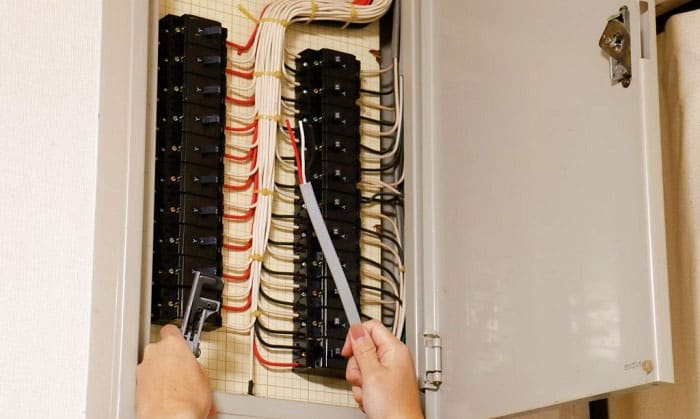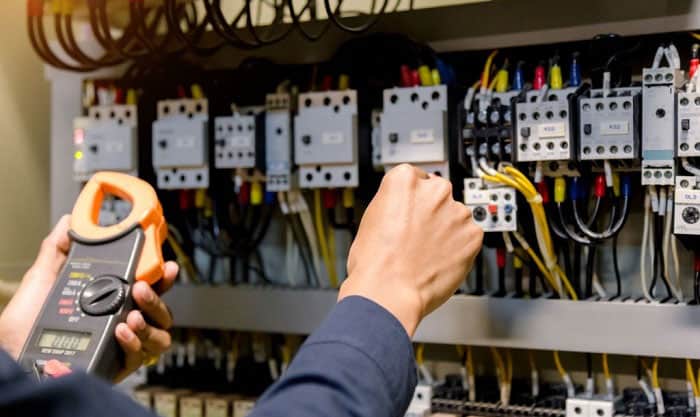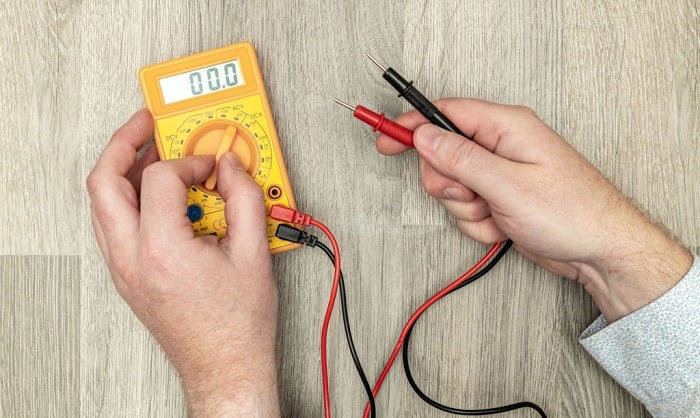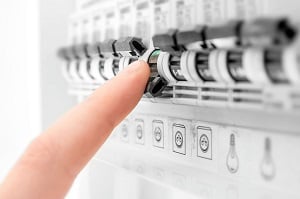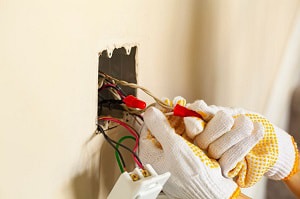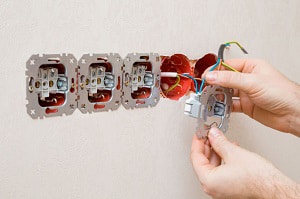What is electrical grounding? How important is it to have your electrical system properly grounded? And how to tell if breaker box is grounded?
A properly grounded electrical system keeps you safe by redirecting electricity to the ground via the ground wire. If this system is defective, anyone plugging into your outlet runs the risk of getting injured if there’s a problem with the electrical appliance they’re using.
To know if you have an adequately grounded electrical system, you need to test it with your multimeter. Read on below to know how to do this properly.
Table of Contents
Tools You Need
To test your household ground, you need the following tools:
- Insulated gloves for additional safety
- Screwdrivers set for disassembling outlet
- Multimeter for checking the voltage of each line
In this procedure, preparing a screwdriver set is ideal. You can use any multimeter, depending on what you have. However, if you are not familiar with a multimeter, I highly suggest using a digital multimeter. It is convenient to use, and the results you get are easy to read.
Step-By-Step Guide on How to Test the Grounding of Your Breaker Box
Simply looking at your electrical connection isn’t enough to know if your electrical system is correctly grounded. After all, there might be internal breaks or disconnections that you can’t see. Plus, using a multimeter will give you accurate results, and it can be used for other applications as well.
So, here’s a step-by-step guide on how to check your grounding safely with a multimeter.
Step 1: Disassemble Your Outlet
Before doing anything in your outlet, I suggest turning off the particular circuit breaker where your outlet is connected. It will provide you with additional safety as it prevents accidents.
With the breaker off, you can now disassemble your outlet and pull out the outlet on the wall. Ensure that no wires are touching, even accidentally. Once you’re sure of that, switch the breaker back on.
Step 2: Test All Wires and the Metal Casing Using a Multimeter
After pulling out the outlet on the wall, you will notice three wires: black for hot wire, white for the neutral wire, and green for the ground wire.
Touch the black wire with the red lead and the white wire with the black tip using your multimeter. There should be a reading of 120 to 125 volts of electrical supply. Then touch the black wire with the red lead and the green wire with the black tip of the multimeter. The reading should be the same as the first one.
Step 3: Assemble Your Outlet
After checking all the wires and getting the above result, you can be sure you have no grounding problems. Switch off the circuit breaker of the outlet, and then reassemble the outlet.
But should you get no reading between the black hot wire and the green ground wire, that means that the outlet might not be properly grounded. I suggest calling a professional electrician to troubleshoot this problem.
Watch this video by FIX IT Home Improvement Channel to further help you understand how to test your outlet grounding easily.
Note: There are outlets where you can’t find a green wire because the electrical box is grounded to the metal conduit up to the breaker box. However, this type of grounding system is not ideal because the box may get energized and overheated in short circuits.
If you find that your house has this setup, I recommend consulting a licensed professional to determine if you need to change your home electrical system.
What Will Happen if You Have an Ungrounded Panel Box?
Without grounding breaker box, your electrical system might not be very safe, even if you have a circuit breaker. It means that your appliances, devices, and even you are not safe if an electrical fault happens in your system.
For example, suppose you have an appliance with a metal housing, like an oven toaster, washing machine, or refrigerator, and it suffers from an electrical fault. In that case, the enclosure itself might become electrically live.
But if it’s plugged into a properly grounded outlet, the electricity will travel to the earth via the ground wire, thus preventing an accident.
To better understand how to ground a breaker box, you need to understand the difference between a hot wire and a neutral wire.
Why You Need Household Grounding or Earth Grounding in Your Electrical System
Just like your circuit breaker, a grounding circuit breaker box has an essential role in your electrical system. It is also crucial to meet electrical panel grounding requirements set by your city or state. Here are the reasons why your home needs grounding.
Prevents Damage to Property
Overloads caused by electrical surges are some of the most dangerous incidents. To protect yourself and your system against these events, you can install a surge protector. However, should that device fail, earth grounding will protect your appliances and wiring by redirecting the excess current from your electrical system into the ground.
For example, if lightning strikes your place, it produces a high voltage that runs through your system. If you have adequate grounding, the excess current in your system will go into the earth. Thus, the chance of your appliances and house getting damaged will be low.
Stabilize the Level of Electricity
The grounding in your electrical system stabilizes the amount of electricity in your house. It helps to distribute the right amount of electricity in the particular area where you are using it.
On the other hand, if you do not have earth grounding, the excess voltage electricity will stay in your electrical system. In the long run, it can cause damage to your appliances and equipment.
Prevents Electrocution Incidents
Household grounding also protects people from electrocution. If you have an appliance that suffers from an electrical fault like a short, any excess energy that it generates will travel to the earth via a properly grounded wire.
However, if your electrical system isn’t adequately grounded, you could get electrocuted when you touch an appliance with an internal short circuit. That’s because you’re going to be the only way for the excess energy to travel from the damaged appliance to the earth.
Conclusion
Hopefully, you now know how to tell if breaker box is grounded. Understanding the way to ground a circuit breaker box will give you knowledge to safeguard your appliances. Furthermore, checking your grounding system will let you know how much electrical protection you have in your home.
Did you learn something meaningful with this article? Do you have a proper grounding system in your house? Don’t forget to share this article with your friends who might have problems with their electrical systems.

I am Edwin Jones, in charge of designing content for Galvinpower. I aspire to use my experiences in marketing to create reliable and necessary information to help our readers. It has been fun to work with Andrew and apply his incredible knowledge to our content.

